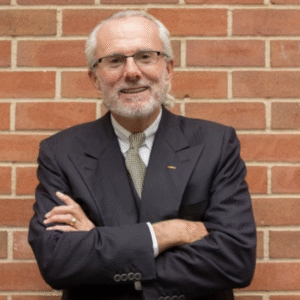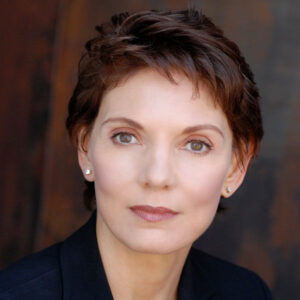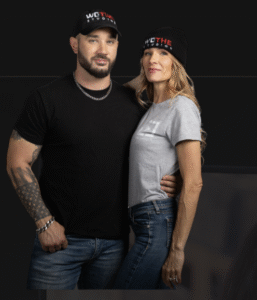
Rev. William Devlin (aka “PB”)
Pastor of Infinity Bible Church and President of REDEEM, Veteran

Dr. Renata Moon speaks about the following topics:
General Pediatrics & Pediatric Hospital Medicine
Medical Education and Training for Physicians
Informed Consent in Pediatric Care
Parental Rights in Medical Decision-Making
Freedom of Speech and Advocacy within Medicine
COVID-19 Vaccines and Pediatric Vaccine Policy
Differential Diagnosis in Pediatrics
The Importance of Scientific Discourse in Medicine
She frequently addresses these subjects in professional forums, educational events, interviews, and expert witness testimony.
“Fight for your children as if their very lives depend on your success. Because their very lives depend on your success.”
-Dr. Renata Moon
Dr. Renata Moon’s main contributions to pediatric medicine focus on clinical care, medical education, and advocacy for informed consent and free speech in the medical field:
She is board certified in both General Pediatrics and Pediatric Hospital Medicine and has practiced for more than 25 years.
As a Clinical Associate Professor of Medicine, Dr. Moon has taught countless medical students and residents, shaping the careers of future pediatricians.
She served as one of the founding volunteers for Washington State University’s medical school and contributed to writing foundational policies and serving on the first admissions committee.
Dr. Moon has worked as an expert witness in pediatric hospitalist and pediatrics cases.
She is an advocate for informed consent and freedom of speech within medicine, especially regarding childhood vaccination, and has spoken publicly about her concerns about COVID-19 vaccines for children, asserting the need for open dialogue and evidence-based decisions in pediatric practice.
Her career combines direct patient care, academic leadership, medical expert testimony, and advocacy for ethical transparency and open discussion within pediatric medicine.
Dr. Renata Moon is a board-certified pediatrician with expertise in both General Pediatrics and Pediatric Hospital Medicine. She graduated from Washington University in St. Louis, earning degrees in biochemistry and medicine, and has practiced clinical pediatrics for over 25 years. In addition to her clinical work, Dr. Moon has served as a Clinical Associate Professor of Medicine, teaching countless medical students, interns, and residents throughout her career.
Dr. Moon is known for advocating informed consent and freedom of speech within medical education and the doctor-patient relationship. She became publicly prominent after expressing concerns about COVID-19 vaccines for children, which led to professional consequences. She relinquished her state medical license under duress following warnings from her employer, Washington State University, that she would be reported for her public comments against vaccinating children to prevent COVID-19. Dr. Moon, along with other physicians, has legally challenged the state’s medical regulators, arguing for free speech rights and against disciplinary action for dissenting medical opinions regarding COVID-19 treatments and vaccination policies.
Dr. Moon is also noted for her personal advocacy for free expression, drawing from her family’s history—her parents fled political persecution behind the Iron Curtain to the United States seeking freedom.
Dr. Renata Moon has advocated for informed consent in pediatric care in several significant ways:
Testimony on Informed Consent Standards: Dr. Moon publicly testified that she could not provide proper informed consent to parents regarding the COVID-19 vaccines for children because the package inserts were intentionally left blank—denying access to information about the product contents, mechanism of action, and expected side effects. She emphasized the ethical necessity for clinicians to fully disclose risks and benefits, especially with novel products administered to healthy children.
Emphasis on Parental Rights: Dr. Moon has spoken out forcefully for parental rights in medical decisions, arguing that parents must have access to unbiased, complete information before consenting to any medical intervention on behalf of their children. She resisted coercive or rushed consent practices, such as pressuring families to vaccinate during short routine appointments or incentivizing children through peer pressure or rewards.
Opposition to Coercion and Bullying: She objects to the use of any form of coercion, bullying, or bribery to push medical interventions, insisting that true informed consent must be free from pressure and manipulation.
Expert Witness Work: Dr. Moon has served as an expert witness in vaccine injury cases, furthering the cause of informed consent by ensuring that adverse reactions are properly investigated and that parents and clinicians understand the risks and limitations of legal recourse in vaccine injury situations.
Advocacy in Professional Forums: She has advocated for these principles within medical education and doctor-patient relationships, influencing other doctors and trainees to uphold high standards for informed consent and ongoing dialogue with families.
Dr. Moon’s approach includes tailoring recommendations to each child’s health status and family history, respecting decisions to delay or decline recommended interventions, and steadfastly defending the necessity for parents to ask questions and receive answers before consenting to care.
IN HER WORDS
Dr. Renata moon shares what she witnessed in her practice, as well as the blank informational inserts included with the COVID-19 vaccines. Her testimony begins at 2:22:43.
Click the image below towatch the video.
Dr. Moon is an exceptionally well-trained pediatrician with over 25 years of clinical experience. She trained at a top U.S. medical school, earning board certification in both general pediatrics and pediatric hospital medicine. With an unblemished career record of patient care, Dr. Moon practiced in the State of Washington for over 17 years primarily as a pediatric hospitalist at Sacred Heart Children’s Hospital in Spokane. Despite caring for the region’s sickest children – patient care with one of the highest risks of malpractice claims – she has had no malpractice claims or actions against her license in Washington State or elsewhere.
Dr. Moon testified at a public hearing entitled “Covid-19 Vaccines: What They Are, How They Work, and Possible Causes of Injuries” held by a US Senator in Washington DC in December 2022. In July 2023, Washington State’s Elson S. Floyd College of Medicine reported Dr. Moon’s public testimony to The Washington Medical Commission. The Washington Medical Commission is now investigating Dr. Moon’s medical license for alleged “unprofessional conduct” for voicing concern about the dangers of the Covid-19 shots at this senate hearing. The current investigation by the Washington Medical Commission is frivolous, based on unsound policy and persecutes a physician simply for speaking.
This investigation is an attempt by the Washington Medical Commission to regulate Dr. Moon’s rights of petition, assembly, and speech, and to chill these first amendment rights and those of other medical professionals. A medical professional is not required to agree with any government agency, including the Washington Medical Commission. A medical professional has the obligation to put the well-being of his or her patients before any government-imposed orthodoxy or narrative. A medical professional has the right to gather with other medical professionals and petition the government regarding issues of public interest. In addition, medical ethics dictates that a medical professional has the obligation to speak out when there is a concern that a medical product, which is being used widely and indiscriminately, poses potential risks or where questions arise about its safety. Such debate provides a healthy check and balance on the practice of medicine and promote the primary responsibility to first do no harm.
“America is in the early stages of marxism/communism. Our loss of freedom is still somewhat soft. Think of it as liquid concrete filling a swimming pool. People in the pool can still swim around but swimming is difficult. As the concrete of communism hardens, it will become impossible to move. The time to speak and stop communism from hardening around us is RIGHT NOW. Very soon, it will be too late.”
– Dr. Renata Moon
Censorship is no longer creeping into American medical education—it has stormed the gates.
Freedom of speech is the cornerstone of our constitutional republic, enshrined by our forefathers in the First Amendment. As a doctor and medical professor, I have witnessed its systematic destruction within academic institutions. This chilling trend threatens the very fabric of science, medicine, and ultimately, society.
Medical schools are charged with training the next generation of physicians and are, therefore, directly responsible for shaping the nation’s healthcare systems. Their successes and failures impact our ability to live long, healthy lives. Central to scientific advancement is the open exchange of ideas. It fuels critical thinking, innovation, and progress. Without it, medicine becomes stagnant. Without it, medicine dies.
Today’s medical students are trained to silently accept a singular, curated viewpoint. Dissent is unwelcome, and intellectual curiosity is discouraged. Instead of examining evidence, students are expected to politicize medicine, championing pre-approved social justice narratives instead of objective risk-benefit analysis.
This suppression of dialogue poses a grave threat to patient care and public health. Future doctors are conditioned to believe that care is protocol-driven, that systems are beyond reproach, and that questioning authority is a form of misconduct. They are being molded into social activists, not scientists, and their life-and-death decisions will suffer for it.
This cultural regression didn’t begin overnight. The erosion of academic freedom has been building for decades, but the decline accelerated dramatically in late 2020, as if a switch had been flipped from “freedom” to “off.”
Medical students and faculty lost the ability to speak freely about topics outside the administration’s approved ideological framework. Even more disturbing, many students celebrated this censorship, demanding protection from alternative viewpoints in the name of psychological “safety.” Words were redefined as violence. Exposure to differing perspectives was labeled traumatic. Students began actively resisting any dialogue that challenged orthodoxy.
Discussion groups, once vibrant forums of respectful exchange, became strained and evasive. Faculty and students dodged controversial topics to avoid reprimand. The few who recognized the Orwellian shift reported feeling as if they were “walking on eggshells,” afraid to ask legitimate questions that might jeopardize their degrees.
Punishment for intellectual dissent became routine. Institutional investigations and peer retaliation silenced those who questioned prevailing narratives. A sideways glance or a moment of silence could extinguish any spark of debate. Administrative consequences were no longer hypothetical—they were expected.
In one instance, during a large lecture and small group breakout sessions, the topic of transgender surgeries for children was introduced without any opposing viewpoints or discussion. The risks of medical and surgical interventions were ignored. Ethical concerns about irreversible procedures on minors were never raised. Students were instructed to “do this according to given instructions.”
Faculty and students were taught to “affirm” whatever the child requested, regardless of clinical judgment. If parents objected, the hospital would advocate for their removal from the decision-making process.
Faculty development sessions were held to teach professors the “correct terminology” to use with students—a performative exercise in ideological conformity. One such session ended with an administrator unable to define several mandated terms.
On another occasion, a medical student asked a faculty physician about possible indications for Ivermectin in treating COVID-19 during clinical rotation. For simply asking the question, the student was removed from the rotation and referred to the school’s Professionalism Committee for potential “unprofessional conduct.”
Meanwhile, students’ respect for professors has deteriorated. Once viewed as mentors with years of patient experience, many instructors now find their authority challenged by students armed with search engines and inflated self-confidence. This inversion of academic hierarchy further erodes the trust and dialogue that medical education requires.
In one clinical workshop, a professor of orthopedic medicine asked students to name anatomical features of the forearm. When no one could answer, she gently reminded them that the topic had been covered the previous week. Rather than admit they had not reviewed the material, the students anonymously reported the professor for “mistreatment.” The school opened an investigation.
If future physicians are trained to avoid difficult questions about ethics, treatment safety, or real-world outcomes, they will be unprepared to care for complex patients or adapt to rapidly evolving science. Without freedom of speech, the spirit of inquiry is extinguished, innovation stalls, and the entire healthcare system suffers.
Physicians stripped of their autonomy become little more than vending machines, dispensing standardized care that ignores nuance and individual need. The consequences are already visible: more than 1.1 million Americans died of COVID-19, and countless more were harmed by the mRNA “vaccines.”
To recover, we must restore a culture of openness. We must urgently confront this free fall into educational dysfunction. Institutions must become safe spaces for uncomfortable questions, not just safe havens for ideological consensus.
To rescue medical education from its current decline, we must implement these urgent reforms:
• Reinstate strictly merit-based admissions rooted in academic excellence and intellectual aptitude
• Replace ideologically driven faculty with educators committed to objective, evidence-based science
• Establish and enforce standards for open, respectful discourse that reward critical thinking
• Refuse donations or grants that compromise the independence and integrity of medical education
• Redesign the medical curriculum to eliminate undue influence from the pharmaceutical and insurance industries
We are not just fighting for academic freedom—we are fighting for the soul of medicine itself. A profession built on inquiry, compassion, and the courage to confront uncertainty cannot survive in silence. If we do not reclaim our classrooms and clinics from the grip of censorship and groupthink, we won’t just lose the next generation of doctors—we’ll lose the patients they were supposed to protect.
The time to course-correct is now.
To schedule an interview or request more information, please contact the RMG Press Office at dslaughter@recursionmediagroup.com.
Renata M. Moon, M.D.

Pastor of Infinity Bible Church and President of REDEEM, Veteran

Seeks to expose, oppose, resist and ultimately defeat the global power grab know as the”Great Reset”. | Founder & Pres. Anti-Globalist International | Founder & Pres. Women’s Rights Without Frontiers | Co-Founder, Sovereignty Coalition | Political Commentator

Founders, ‘We The Studios’, a streaming platform promoting “quality, safe, and enjoyable” content free from political bias and identity politics, aimed at families and traditional values. Family-friendly, non-“woke” entertainment options.

“Fight for your children as if their very lives depend on your success. Because their very lives depend on your success.”
-Dr. Renata Moon

Heroes to Heroes Foundation provides spiritual healing and peer support for American Combat Veterans who have attempted suicide or are on a path to self-destruction due to moral injury.
